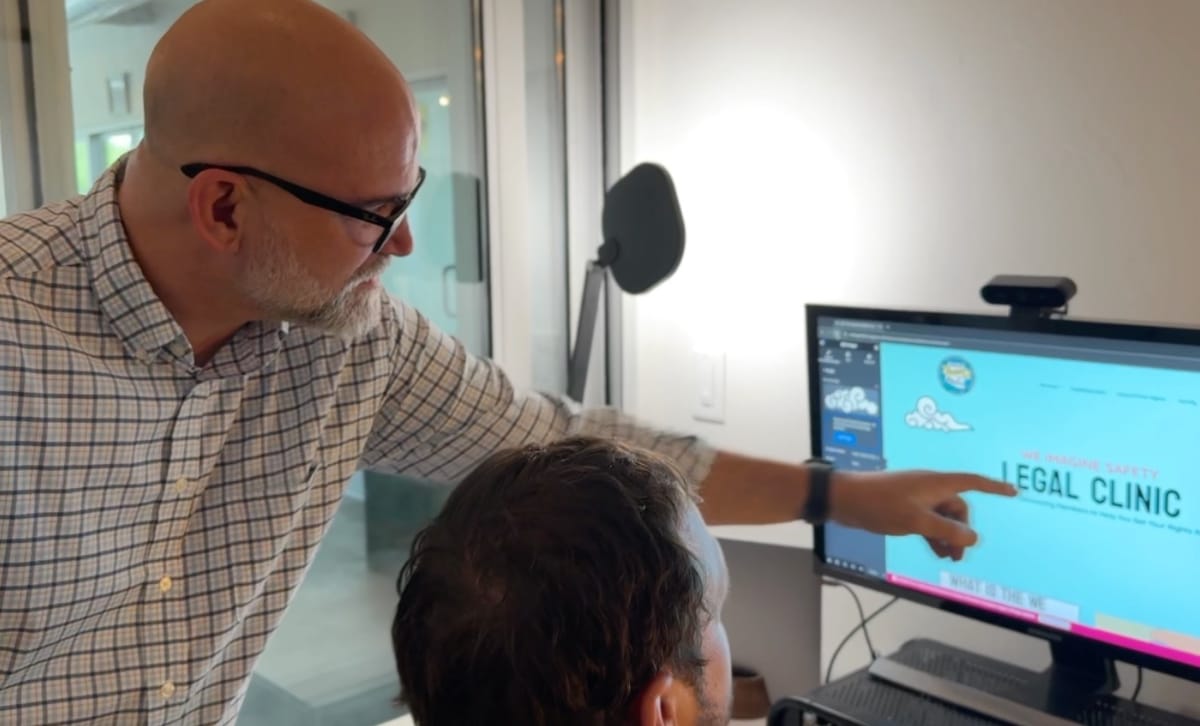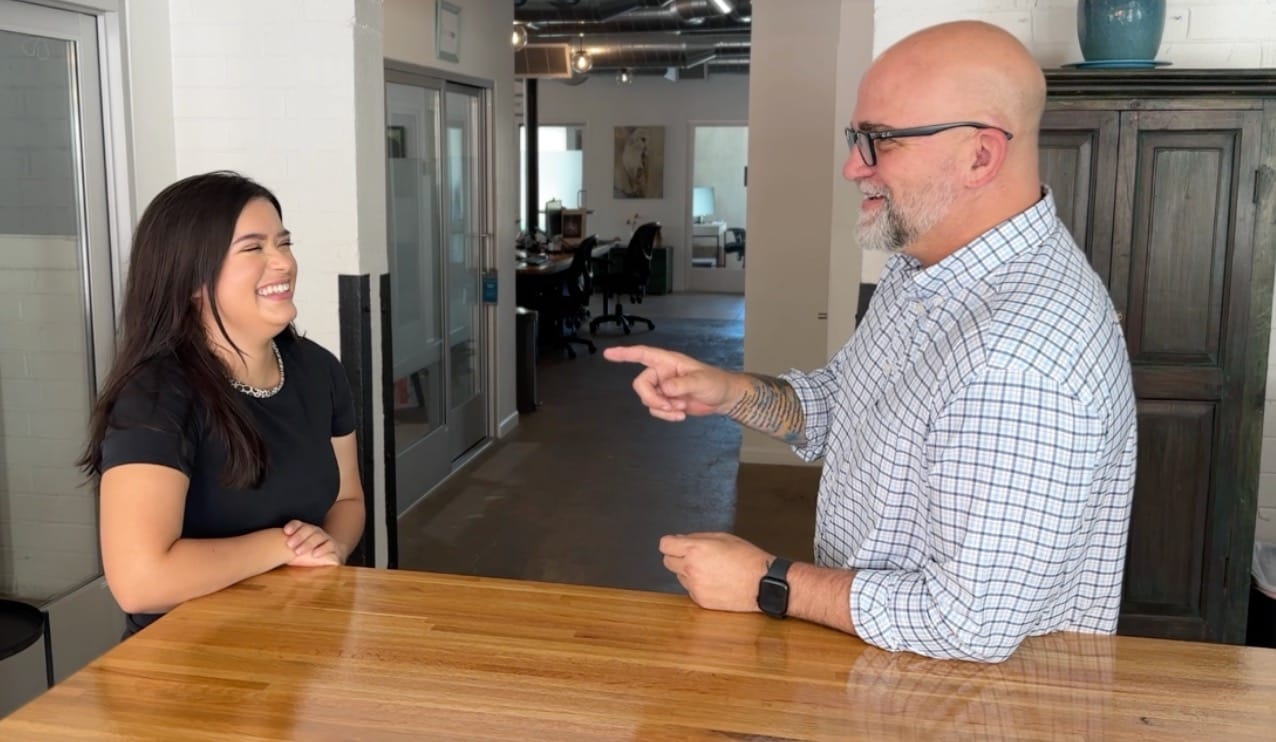Tucsonan pushes for voting rights reform for felony convictions
Joe Watson has been working in prison reform advocacy for years, including his recent efforts to bring attention to Arizona's felony disenfranchisement laws.

The ACLU reports that more than 220,000 Arizona residents are unable to vote due to felony convictions, including one Tucsonan who is working to bring awareness to the issue and encourage the state legislature to make a change.
Joe Watson started his journalism career 25 years ago with a sportswriting position at Mesa’s East Valley Tribune. He covered baseball, football and college sports, before easing into magazine writing, where he worked for the Phoenix New Times and won a handful of awards.
But in 2007, Watson ended up making headlines of his own when he was arrested in connection with a string of armed robberies, during what he described as a “mental break.”
“I had a lot of things I hadn’t dealt with and a really bad compulsive gambling problem,” he told Tucson Spotlight.
Watson was offered a plea bargain of 25 years, but decided to reject it and take his chances in court. He spent more than three years in jail while his case worked his way through the system.
Rejecting his public defender’s advice and representing himself in court, Watson said he admitted to every single thing he had done.
“I thought, you know, this probably is going to end really badly. But how much worse could it be than 25 years?” he said.
While he was facing up to 214 years in prison, the judge ended up only sentencing him to 12, cutting his plea offer in half.
He started his prison sentence in 2010 and was released in 2017, but the time he spent incarcerated left a lasting impression and sparked his future career in prison reform advocacy.

While Watson said he can’t complain about his experience in prison, his time allowed him to see what he calls a culture of indifference towards people in prison and jail.
There are better ways to hold people accountable that don’t isolate them from their own communities or families, Watson said.
And while he recognizes the way his own privileged background benefited him during his time in prison, he also saw first-hand how it can harm others.
“Incarceration did not harm me as it does the overwhelming majority of people who go to prison who are disproportionately black and brown folks, people with mental health issues or those who have experienced trauma in their lives,” he said. “I saw how prisons not only don’t help people overcome those things, but they exacerbate those traumas.”
During his time in prison, Watson returned to his first love and began to write for Prison Legal News, a publication that is distributed across the country to incarcerated people, lawyers and non-profits.
For five of his seven years behind bars, he wrote about the issues that mattered to him – free speech, the death penalty and the execution drugs that the state of Arizona was trying to obtain at the time.
But in his last two years of prison, which he served in Tucson, he was able to work while incarcerated – allowing him to save money and build a financial cushion for his release.
But his ability to work and earn a reasonable wage is just one of the factors that Watson believes played a role in his prison experience.
”I benefited from whiteness, I benefited from having access to a good education before I went to prison and I got this job that helped me save,” he said.
Upon his release in 2017, he began working for American Friends Service Committee, a Quaker organization that aims to “challenge injustice and build conditions for lasting peace.”
Watson worked for their Arizona sector doing research and media consulting.
“I didn’t know anything about social media at the time when I got out because I was locked up throughout the entire (time that) smartphones (were) coming on board,” he said. “Working for the American Friends Service Committee gave me an opportunity to learn all of those things.”
During his time as communications director, Watson worked to mobilize formerly incarcerated people and their families to advocate for sentencing reform.

Three years after his release, Watson told incoming Pima County Attorney Laura Conover, who campaigned on a criminal justice reform platform, that she should hire a formerly incarcerated person to be her director of communications.
And she did.
For 14 months, he worked for Conover, before leaving to launch his own communications agency, Hey Joe Media. Watson calls his company a “fair chance” agency, meaning that he works mostly with people who have a criminal history, hiring them to do everything from web development to videography.
Watson has had plenty of work in the three years since he started his own company, but says there’s still so much more to be done.
In October, he published an op-ed in the Arizona Mirror about his unsuccessful experience trying to get his voting rights restored and the need for change in the state.
“We’re seeing a backlash to the reforms that have been instituted since 2020 and the murder of George Floyd,” he said. “We’re seeing rollbacks of those reforms across the country.”
While he was met with mostly positive feedback, some still took issue with his stance, including the Tucson Agenda, whose 100-word summary of the piece twice mentioned the number of charges of which Watson was convicted – a detail that was not included in the original piece.
The ACLU of Arizona reports that of the 221,170 people with felony convictions who are barred from voting in Arizona, only 20% are currently in prison.
More than half of those people have fully completed their sentences and the rest are working to finalize restitution and other terms.
Despite these setbacks, Watson says he’s on a mission to continue his fight for voting rights for formerly incarcerated people in the state of Arizona, building coalitions and helping people tell their stories.
“We need folks who are going to go out there and fight back over these next two, three years,” he said. “So when it comes time for folks to vote on these issues, there are communities all over the country who are armed with evidence-based solutions and data.”
Olivia Krupp is a journalism major at the University of Arizona and Tucson Spotlight intern. Contact her at oliviakrupp@arizona.edu.
Tucson Spotlight is a community-based newsroom that provides paid opportunities for students and rising journalists in Southern Arizona. Please support our work with a paid subscription.



